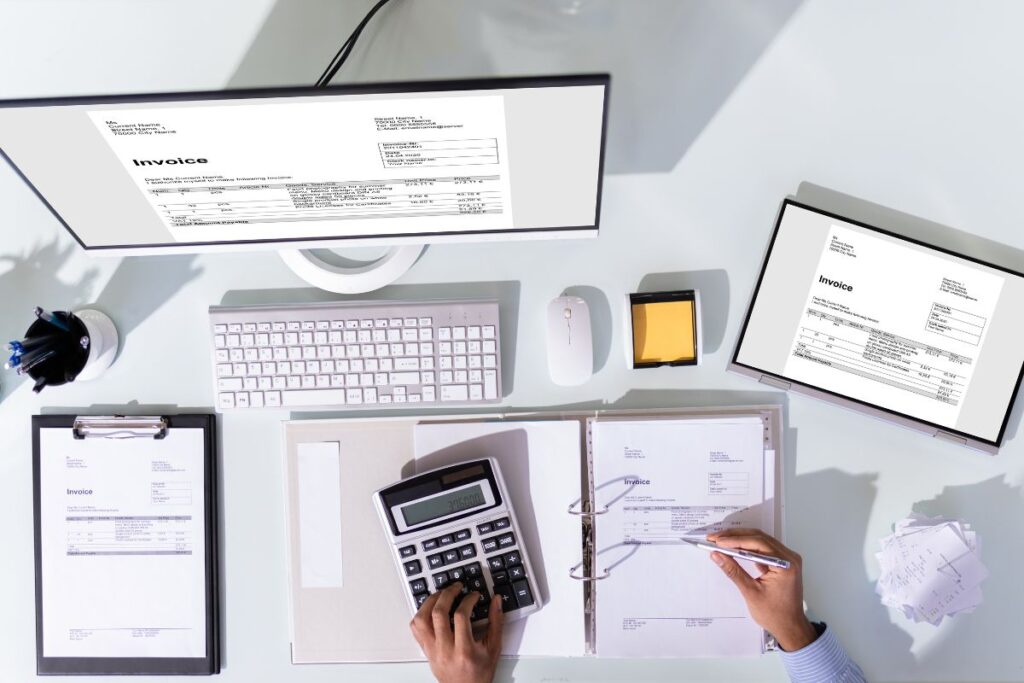Managing finances for a real estate business feels like trying to juggle flaming torches while riding a unicycle. You’ve got rental income streaming in from multiple properties, maintenance costs popping up unexpectedly, tenant deposits to track, and tax obligations that seem to multiply faster than rabbits. Without the right accounting software real estate professionals can rely on, you’re setting yourself up for late nights, stressed-out moments, and potentially costly mistakes.
We’ve spent years helping real estate agents, property investors, and property managers get their financial house in order. Here’s what we’ve learned about choosing the right tools to streamline your property business finances.
Why Real Estate Businesses Can’t Rely on Basic Accounting Software
Real estate accounting isn’t your typical small business bookkeeping scenario. You’re not just tracking sales and expenses like a retail shop. Property management involves complex financial layers that basic software simply can’t handle effectively.
Think about it. You need to track income and expenses for each individual property, manage trust accounts for tenant bonds and client funds, handle GST calculations on property sales, and generate detailed reports that satisfy both your accountant and the Australian Taxation Office. Standard accounting programs often leave you creating workarounds that consume hours of valuable time.
Real estate accounting programs designed specifically for property professionals understand these unique challenges. They’re built to handle multiple properties, complex reporting requirements, and the specific compliance needs that come with managing real estate in Australia.
Essential Features Every Real Estate Professional Needs
When we help clients choose real estate accounting software, certain features consistently prove their worth. Let’s break down what actually matters in your day-to-day operations.
Property-Level Financial Tracking
Your software needs to treat each property as its own profit centre. This means tracking rental income, maintenance expenses, insurance costs, and other property-specific items separately. Without this capability, you’ll struggle to understand which investments are performing well and which might be dragging down your overall returns.
Automated Bank Feeds and Transaction Matching
Manual data entry is where good bookkeeping goes to die. The best accounting software for real estate connects directly with Australian banks, automatically importing your transactions and reducing human error. This feature alone can save you hours each week while improving accuracy.
Trust Accounting Compliance
Real estate agents handling client funds need robust trust accounting features. Your software must separate trust money from your operating funds and generate the detailed reports required by Australian regulations. Getting this wrong can result in serious compliance issues.
Comprehensive Financial Reporting
You need reports that show cash flow by property, profit and loss statements for individual investments, and consolidated views of your entire portfolio. The software should generate tax-ready summaries without requiring a finance degree to interpret the results.
Top Real Estate Accounting Software Options
Xero: The Cloud-Based Favourite
Xero has become increasingly popular among Australian real estate professionals, and for good reason. Its user-friendly interface makes it accessible for new users, while robust features satisfy complex requirements. The platform excels at automated bank reconciliation and offers excellent integration with property management tools.
What we particularly appreciate about Xero is its real-time collaboration capabilities. Your bookkeeper, accountant, and team members can access the same data simultaneously, making financial management a truly collaborative effort. The pricing starts at reasonable levels, though costs increase as you add more features and users.
QuickBooks Online: The Established Player
QuickBooks remains a solid choice for many property professionals. Its class and location tracking features help separate different properties, while automated bank feeds keep your records current. The software integrates well with various property management platforms, though you might need additional apps for more complex real estate-specific needs.
QuickBooks Online Advanced offers enhanced reporting features that work well for property investors managing multiple properties. However, some clients find they need supplementary tools for complete functionality.
MYOB: The Australian Solution
As locally developed software, MYOB understands Australian compliance requirements particularly well. It provides solid property tracking capabilities and integrates seamlessly with major Australian banks for automated feeds. The platform offers good value for small to medium-sized real estate businesses operating within Australia.
Sage Intacct: Enterprise-Level Power
For larger real estate operations, Sage Intacct delivers enterprise-level features including multi-entity accounting and advanced financial reporting. While it comes with higher costs, the robust features justify the investment for complex property portfolios.
Making the Transition to New Software
Switching accounting platforms might seem overwhelming, but proper planning makes the process manageable. We typically recommend starting with a thorough cleanup of your current data and mapping out existing processes. Most software providers offer migration assistance, and running systems in parallel for a short period helps ensure nothing gets lost in translation.
Consider timing your switch at the beginning of a new financial year. This approach simplifies record-keeping and makes annual tax preparation much smoother for both you and your accountant.
Maximising Your Software Investment
Once you’ve selected your platform, proper setup becomes crucial. Create separate tracking categories for each property, establish consistent naming conventions for accounts, and automate as many processes as possible. These initial steps pay dividends in time savings and data accuracy down the track.
Regular training keeps your team current with new features and best practices. Most software providers offer webinars and tutorials that reveal time-saving shortcuts and advanced capabilities you might have missed during initial setup.
Integration opportunities shouldn’t be overlooked either. Your accounting software should work seamlessly with property management systems, banking apps, and other business tools. The right integrations eliminate duplicate data entry while providing more complete insights into business performance.
Our bookkeeping for real estate agents service includes software optimisation and ongoing support to ensure your financial systems support your sales success.
Choosing Software That Grows With Your Business
Property portfolios rarely stay the same size forever. Whether you’re adding rental properties, expanding into commercial real estate, or growing your agency team, your accounting software needs to scale accordingly. Look for platforms that offer upgrade paths and additional features as your business evolves.
Cloud-based solutions generally provide better scalability than desktop alternatives. They offer automatic updates, enhanced security, and the flexibility to access your financial data from anywhere. This becomes particularly valuable when you’re viewing properties, meeting with clients, or working from different locations.
Consider also how well the software handles different property types. Residential rentals, commercial properties, and development projects each have unique accounting requirements. The best real estate accounting software adapts to these varying needs without forcing you into rigid structures that don’t match your business model.
Getting Professional Support for Your Real Estate Accounting
Even with excellent real estate accounting software, many property professionals benefit from working with experienced bookkeepers who understand the industry inside and out. Advanced Bookkeeping and BAS specialise in helping real estate businesses streamline their financial processes and maximise their chosen software’s potential.
Whether you need assistance selecting the right platform, setting up your chart of accounts for optimal property tracking, or ongoing bookkeeping support, professional guidance can save significant time while reducing financial stress. Our team understands the unique challenges of property accounting and can help implement systems that genuinely work for your business.
We also provide BAS services specifically tailored to real estate professionals, ensuring your Business Activity Statements accurately reflect your property transactions and comply with ATO requirements.
Get in contact with our team at Advanced Bookkeeping and BAS to learn more.
Questions Meet Answers
What’s the biggest difference between regular accounting software and real estate accounting programs?
Real estate accounting programs are designed to handle property-specific challenges like tracking multiple properties separately, managing tenant bonds and trust funds, handling property-specific tax calculations, and generating reports required for real estate compliance. Regular accounting software often lacks these specialised features, forcing you to create time-consuming workarounds.
How do I know if cloud-based or desktop real estate accounting software is better for my business?
Cloud-based solutions offer real-time access from any location, automatic backups, and easier collaboration with your accountant and team. Desktop software provides more control over your data but requires manual updates and backups. For most real estate professionals, cloud-based options provide better flexibility and support, especially if you work from multiple locations or need team access.
Can I handle trust accounting requirements with standard accounting software?
While possible, it’s not recommended. Trust accounting has strict compliance requirements, and specialised features make it much easier to maintain proper separation between client funds and your operating money. Real estate accounting software designed for Australian requirements includes built-in trust accounting features that help ensure compliance with local regulations.
How long does it typically take to implement new real estate accounting software?
Implementation timeframes vary based on your business complexity and existing data quality. Simple setups might take a few weeks, while complex portfolios with historical data migration could require 1-2 months. Working with experienced bookkeepers familiar with your chosen software can significantly reduce implementation time and ensure proper setup from the start.


